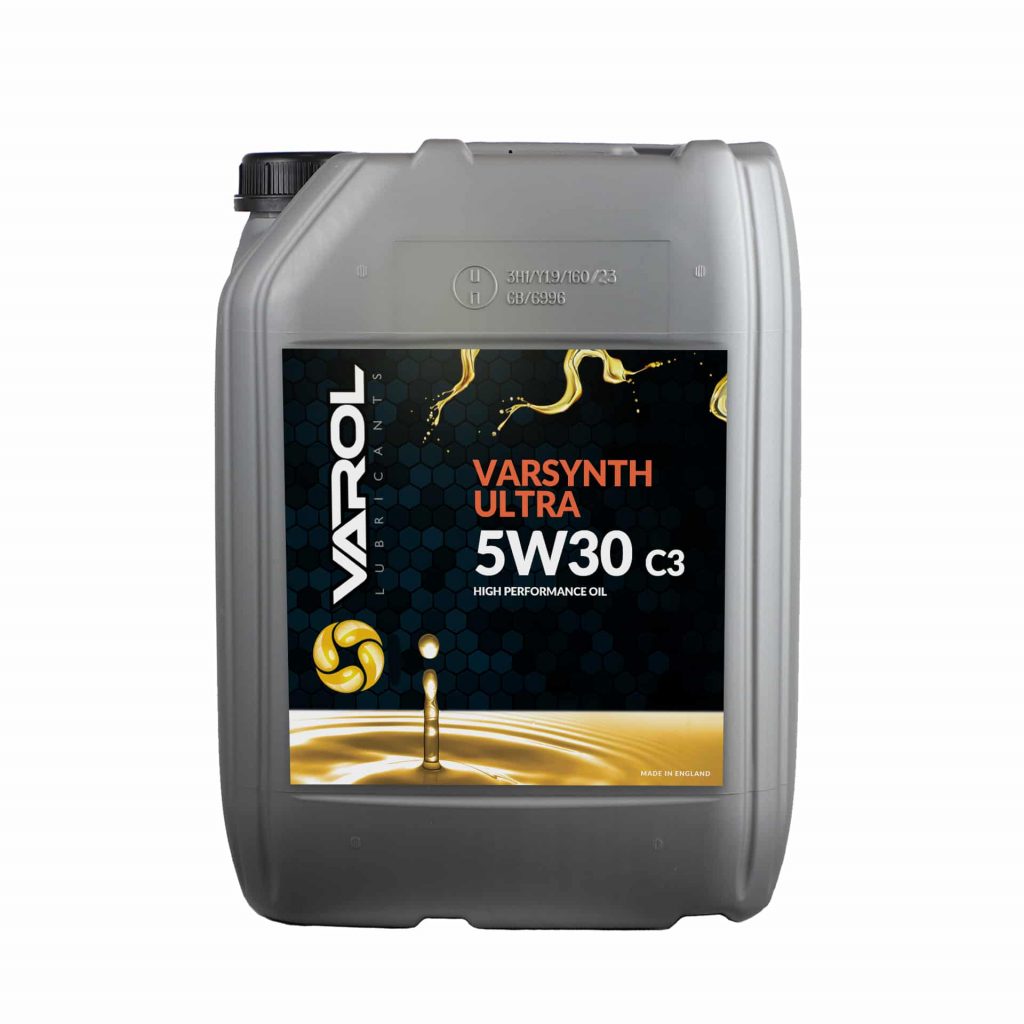As 5W30 is typically cheaper and more widely available than 0W30, many car-owners find themselves wondering: “can i use 5w30 instead of 0w30?” The short answer is yes—but it depends on your vehicle, the climate in which you’re driving, and your car manufacturer’s specific recommendations.
Both 5W30 and 0W30 are multi-grade oils with similar properties, but the key difference lies in their cold weather performance. While 0W30 flows more easily at freezing temperatures, 5W30 remains slightly thicker in extreme cold. If your vehicle manual allows for both oil types, 5W30 can 100% be used as an alternative. However, if your manufacturer strictly requires 0W30, it’s best to follow their guidance.
To help you decide what is best for your vehicle, we’ll explore the differences between the two, and when 5W30 can confidently be used without risk.

0w30 vs 5w30
Car engine & motor oil plays a critical role in engine performance. Choosing the right viscosity grade can impact everything from the fuel efficiency of your vehicle to long-term wear protection. Two commonly compared oils: 0W-30 vs 5W-30, share similar characteristics, but they differ in key ways.
Both 0W-30 and 5W-30 are multi-grade oils. This means they perform well across a wide range of temperatures. The “W” in their name stands for “Winter“, whilst the number before it indicates how the oil will behave in cold conditions.
A lower number means the oil will remain thinner at low temperatures. Therefore, 0W-30 differs to 5W-30 as it will remain thin even in cold conditions, offering better cold-start performance. The second number, in this case “30“, indicates the oil’s viscosity at operating temperature, which remains the same for both oil types.

What Is The Difference between 0w30 and 5w30?
While both oils offer similar protection in warm conditions, 0W-30 provides better cold-weather performance, making it ideal for colder climates. On the other hand, 5W-30 is slightly thicker at startup, which can be beneficial in moderate or warm environments, but not as beneficial for colder climates.
Understanding the difference between the two can help you choose the best engine oil for your car. Here’s a full breakdown of their differences:
| Oil Feature | 0W-30 | 5W-30 |
|---|---|---|
| Cold Weather Performance | Flows better in extreme cold | Slightly thicker in cold starts |
| Warm Weather Performance | Same as 5W-30 | Same as 0W-30 |
| Engine Protection | Excellent, especially in cold starts | Excellent, with slightly higher viscosity at startup |
| Fuel Efficiency | Slightly better in cold climates | Similar in most conditions |
| Best for | Very cold climates, quick lubrication | Moderate to warm climates, general use |
What Types of Vehicles Are Best Suited for 5W30 and 0W30?
Choosing between the two depends on your vehicle type, engine technology, and driving conditions. Here’s a clear breakdown to help you decide which oil type is right for your motor:
0W30: Best for Advanced & Cold-Climate Vehicles:
✅ High-performance cars (sports cars, turbocharged engines): This oil provides quick lubrication for precision engines.
✅ Hybrid & fuel-efficient vehicles: It also helps to optimise fuel economy and reduce emissions.
✅ Extreme cold-weather driving (winter climates, mountainous regions): 0W30 will stay fluid even in freezing temperatures, helping to ensure smooth engine starts.
Why choose 0W30? This oil will remain thinner at cold temperatures, reducing startup wear and improving efficiency in modern, high-tech engines.
5W30: Best for General Use & Older Vehicles
✅ Standard gasoline and diesel cars (sedans, SUVs, trucks): This oil works well for most everyday vehicles.
✅ Older engines (pre-2010 models, high-mileage cars): This silightly thicker oil helps to prevent leaks and wear.
✅ Moderate to warm climates – Provides consistent protection without needing extreme cold-start performance.
Why choose 5W30? This oil offers a more balanced viscosity, making it a reliable all-season option for most drivers.
So, Can I Use 5w30 Instead of 0w30?
Yes – but it’s important to take into account the following considerations before you do:
- Check Your Owner’s Manual: Some manufacturers specifically require 0W-30 for advanced engines, an it’s best not to deviate from these instructions.
- Consider Your Climate: f you live in extremely cold areas, 0W-30 is a better choice for smoother engine starts.
- Think About Engine Wear: Older vehicles may benefit from 5W-30’s slightly thicker protection, which is another important consideration.

5W30 vs 0W30: When Can 5W30 Be Used Without Risk?
You can safely use 5W30 instead of 0W30 if:
✔️ Your owner’s manual lists both as acceptable options.
✔️ You live in a moderate or warm climate.
✔️ Your vehicle does not have specific low-viscosity oil requirements.
✔️ You drive an older vehicle where slightly thicker oil is beneficial.
Always check the manufacturer’s oil specification number (e.g., Ford WSS-M2C913-D or ACEA C2/C3) to ensure compatibility.
Why It’s Important to Check Your Owner’s Manual
Your owner’s manual is the ultimate guide for choosing the right oil for your vehicle. Manufacturers test and design engines to run on specific oil viscosities, and using the wrong one can lead to:Increased
- Engine wear
- Reduced fuel efficiency
- Cold start issues in freezing temperatures
- Potential warranty voids
While the two oils are often interchangeable, always confirm the correct viscosity grade and manufacturer approvals for your specific vehicle.

Can You Mix 0w30 and 5w30?
Mixing 5W30 and 0W30 engine oils is generally not recommended, but in most cases, it won’t cause immediate harm to your engine. Since both oils have the same 30-weight viscosity at operating temperature, they are chemically similar. However, there are a few key factors to consider before mixing them:
When Mixing 5W30 and 0W30 is Acceptable
You can mix these oils in an emergency, such as when your engine is low on oil and only one type is available. Since both oils meet similar industry specifications, your engine will still be lubricated properly. However, your oil blend may not provide the same cold-weather performance as pure 0W30, or the exact manufacturer-approved formulation as pure 5W30.
When Mixing is Not Recommended:
- Manufacturer-Specific Oils – If your vehicle requires a particular manufacturer-approved oil (e.g., BMW Longlife-04 or Ford WSS-M2C913-D), mixing oils could affect performance and void your warranty.
- Cold Climate Performance – If you mix 5W30 with 0W30, the cold-flow properties of 0W30 will be compromised, making cold starts slightly harder in extreme winter conditions.
- Different Additive Formulations – Engine oils contain detergents, anti-wear agents, and viscosity stabilizers that vary by brand and type. Mixing them might reduce overall effectiveness.
Best Practice: Stick to One Oil Type
For optimal engine protection, always use the correct oil viscosity and specification as recommended by your owner’s manual. If you must mix oils in an emergency, plan to change your oil completely at your earliest convenience to maintain proper performance.
Looking for high-quality engine oil? Browse our selection at Midland Oil Group to find manufacturer-approved, high-performance lubricants for your engine.
What Drivers Should Take Precaution?
Drivers in Extremely Cold Climates
If your vehicle is frequently exposed to extreme cold (below -30°C), 0W30 is the better option. 5W30 thickens more in cold temperatures, which can make starting harder and delay oil flow to engine components.
Hybrid and Modern Turbocharged Engines
Some modern turbocharged and hybrid engines are specifically designed for low-viscosity oils like 0W30 to enhance fuel efficiency and reduce emissions. In such cases, using 5W30 instead of 0W30 may slightly impact performance and fuel economy.
High-Mileage or Older Vehicles
Older engines may benefit from a slightly thicker oil like 5W30, especially if they have wear and tear that leads to oil consumption. However, always follow the manufacturer’s recommendation.
Final Verdict: Can I Use 5W30 Instead of 0W30?
Yes, in most cases 5W30 can replace 0W30 without risk, as long as your manufacturer allows it. The biggest difference is cold-weather performance, so if you live in a cold climate, 0W30 is the better option. Always consult your owner’s manual, and if in doubt, choose a high-quality oil like Varsynth Ultra 5W30 C3 or Varsynth Ultra 0W30 from Midland Oil Group.
For expert guidance and high-performance car engine oils, shop with Midland Oil Group today! Looking to place a bulk order? Check out our wholesale engine oil page here.

